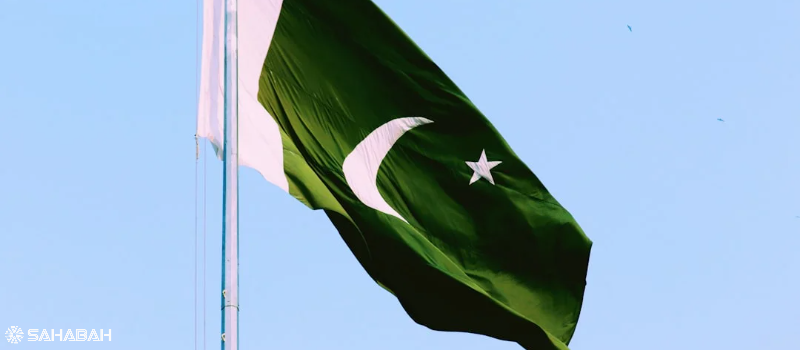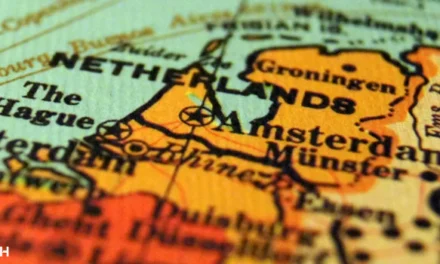Pakistan’s stance towards Israel has been a contentious and multifaceted issue, shaped by historical events, religious sentiments, and geopolitical dynamics. This comprehensive article delves into the intricate details surrounding the question: Does Pakistan support Israel?
Historical Background: The Origins of Pakistan-Israel Relations
The roots of Pakistan’s non-recognition of Israel can be traced back to the Partition of British India in 1947 and the subsequent creation of Pakistan as a Muslim-majority state. From its inception, Pakistan aligned itself with the Muslim world and the Palestinian cause, refusing to establish diplomatic ties with Israel.
Pakistan’s opposition to Israel’s statehood stemmed from the belief that the establishment of Israel came at the expense of Palestinian rights and territorial claims. This stance was further solidified by the Arab-Israeli conflict and Pakistan’s support for the right of self-determination for Palestinians.
Religious and Ideological Factors Influencing Pakistan’s Stance
Islam and the Palestinian cause have played a significant role in shaping Pakistan’s foreign policy towards Israel. The influence of religious parties and public opinion in Pakistan has been a driving force behind the country’s unwavering support for the Palestinian people.
Pakistan’s stance is rooted in the belief that the creation of Israel was a violation of the rights of Palestinians and a denial of their legitimate aspirations for statehood. This ideological position has been a cornerstone of Pakistan’s foreign policy, transcending changes in government and leadership.
Geopolitical Considerations and Regional Dynamics
Pakistan’s relations with Arab and Muslim-majority countries have been a crucial factor in its stance towards Israel. Maintaining strong ties with these nations and upholding solidarity on the Palestinian issue has been a strategic priority for Pakistan.
The Kashmir conflict with India has also played a role in Pakistan’s position on Israel. Pakistan has been wary of any potential shift in its stance that could jeopardize its relations with Muslim-majority countries and undermine its position on the Kashmir issue.
Economic and Trade Ties: Exploring Potential Opportunities
Despite the absence of formal economic relations between Pakistan and Israel, there have been discussions and speculations about the potential for trade and economic cooperation in the future. However, any such initiatives would likely face significant challenges and opposition within Pakistan due to the prevailing political and ideological climate.
The role of third-party countries, such as the United States or European nations, has been explored as potential facilitators for fostering economic ties between Pakistan and Israel. However, these efforts have yet to yield tangible results.
Diplomatic Efforts and Initiatives for Normalization
Over the years, there have been attempts at secret diplomacy and back-channel negotiations between Pakistan and Israel, facilitated by international mediators and third-party countries. However, these efforts have been met with limited success due to the complex nature of the issue and the deep-rooted ideological and political barriers.
Roadblocks to normalization efforts include the strong public sentiment in Pakistan against recognizing Israel, the influence of religious parties, and the fear of backlash from Arab and Muslim-majority countries.
Public Opinion and Domestic Discourse in Pakistan
The stance of political parties and civil society organizations in Pakistan has been largely united in their opposition to establishing diplomatic ties with Israel. The media narratives and public discourse have played a significant role in shaping public perception and reinforcing the country’s position on the issue.
However, there have been indications of generational shifts and evolving attitudes towards Israel, particularly among the younger population in Pakistan. These changing dynamics could potentially influence the future trajectory of Pakistan’s stance, although significant obstacles remain.
The Palestinian Perspective and Its Influence
The Palestinian cause and the stance of Palestinian leadership have been pivotal in shaping Pakistan’s position on Israel. Pakistan has consistently maintained that any normalization of ties with Israel would be contingent upon the resolution of the Palestinian issue and the establishment of an independent Palestinian state.
The impact of the Israeli-Palestinian conflict and the ongoing tensions in the region have further solidified Pakistan’s support for the Palestinian people and their aspirations for statehood.
Regional Security Concerns and the Role of Major Powers
The involvement of major powers, such as the United States, China, and Russia, in the region has added another layer of complexity to Pakistan’s stance towards Israel. Pakistan’s strategic alliances and its relations with these powers have influenced its decision-making process on the Israel question.
The role of international organizations and multilateral forums, such as the United Nations and the Organization of Islamic Cooperation (OIC), has also been a factor in shaping Pakistan’s position on the issue.
Future Prospects and Scenarios for Pakistan-Israel Relations
The future prospects for Pakistan-Israel relations remain uncertain and subject to various scenarios. While some analysts suggest the potential for normalization or recognition in the long term, others argue that Pakistan’s stance is unlikely to change significantly in the foreseeable future.
Changing regional dynamics, global trends, and the resolution of the Israeli-Palestinian conflict could potentially influence Pakistan’s position. However, any significant shift would likely require a comprehensive approach involving diplomatic efforts, public opinion management, and addressing the concerns of various stakeholders.
The role of Track II diplomacy and people-to-people exchanges has been proposed as a potential avenue for fostering greater understanding and paving the way for future dialogue between Pakistan and Israel.
Throughout this complex issue, it is essential to consider the perspectives of all parties involved, including the Palestinian people, Arab and Muslim-majority countries, and the international community. Ultimately, any progress towards normalization or recognition would require a delicate balance of interests and a commitment to finding a just and lasting solution to the Israeli-Palestinian conflict.
FAQ: Does Pakistan Support Israel?
No, Pakistan does not officially support Israel. In fact, Pakistan has historically supported Palestine in its conflict with Israel.
What is Pakistan’s stance on diplomatic ties with Israel?
Pakistan does not have diplomatic relations with Israel. The government of Pakistan has not recognized the state of Israel.
Is it true that Pakistan supports Hamas?
Pakistan has shown sympathy towards Hamas, a Palestinian militant group, in the past. However, this does not equate to official support for the organization.
How has Islamabad reacted to conflicts involving Israel, such as the Gaza War?
Islamabad has often condemned Israeli actions in conflicts like the Gaza War and has expressed solidarity with the Palestinian people.
Has there been any indication of Pakistan establishing diplomatic relations with Israel in the future?
As of now, there are no official plans or indications from the Pakistani government to establish diplomatic relations with Israel.
What are the implications of Pakistan recognizing Israel?
Recognizing Israel would have significant implications for Pakistan’s relationships with other Muslim-majority countries, as well as its stance on the Israeli-Palestinian conflict.
How do Pakistanis view the state of Israel?
The majority of Pakistanis hold negative views towards Israel due to historical and political reasons related to the Israeli-Palestinian conflict.





